#Thû
Text
Thû, the Necromancer, Lord of Werewolves and his Herald, Thuringwethil
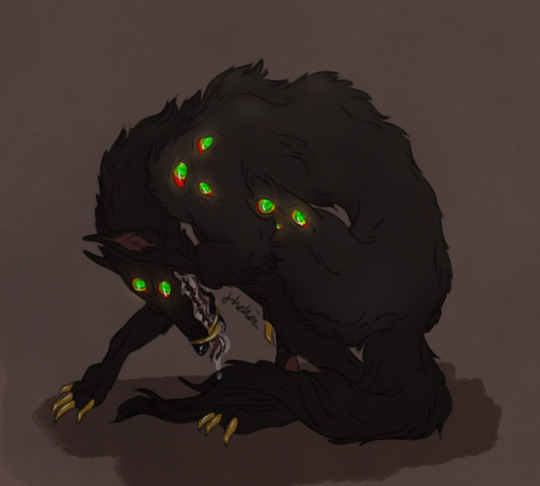
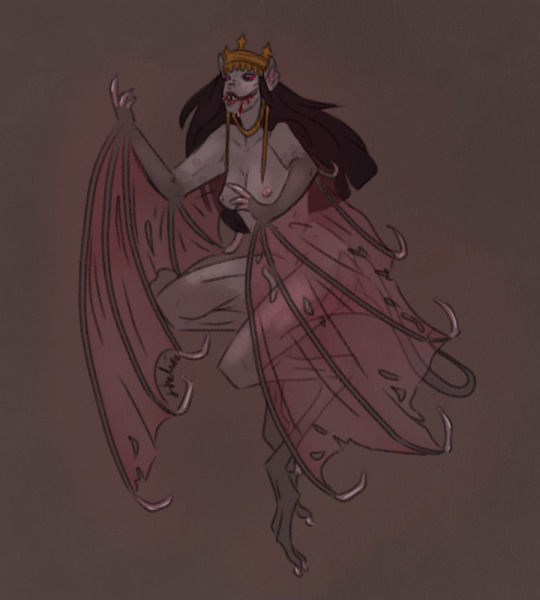
Baby girls😘
#i know i said tm but im really not that patient#tolkien#silmarillion#jrr tolkien#lay of leithian#beren and luthien#mairon#sauron#thû#zigûr#thuringwethil#more monster form#dolwethil#tevildo#i guess#i mean tevildo is a version of both sauron and thu sooo#silm art#tolkien art#my art#digital art
126 notes
·
View notes
Text

Gorthaur and Thuringwethil on Tol en Gaurhoth living their best lives as vampire wife and husband
Design for Thuri heavily inspired by @thuringwedhil
#gorthaur the cruel#gorthaur#mairon#sauron#thû#thuringwethil#Mairon x Thuringwethil#silmarillion#tolkien#lotr#fanart#my art#tol en gauroth#lay of leithian#beren and luthien
261 notes
·
View notes
Text
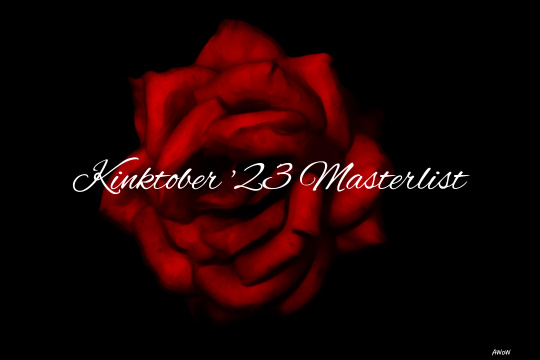
Here it is. The list of Kinktober posts scheduled for sharing, along with the dates.
Warning: Each post contains content of a sexual nature. Minors DNI /🔞

Reader insert requests:
Squirting: “Above all else” | Fëanor x Fem. Reader – 10th October
Size kink: “Made for me | Námo x Fem. Reader – 12th October
Breeding kink: “Strange needs” | Re-embodied! Finrod x Fem. Reader – 14th October
Bondage (hands and arms): “The vow” | Caranthir x Fem. Reader – 18th October
Threesome: “Another bedmate” | Melkor x Mairon x Fem. Reader – 20th October
Spanking: “A new source of pleasure” | Fingolfin x Fem. Reader – 22nd October
Age difference: “The Black Swan” | Arthur Dayne x Fem. Reader – 24th October
Temperature play (Wax): “New delights” | Aemond Targaryen x Fem. Reader – 30th October
Whimsy’s Kinktober specials
Mistress kink: “Mistress” | Varda x Eönwë – 16th October 2023
Temperature play (Ice/Cold): “A welcomed chill” | Arien x Tilion – 19th October
Physical description and NSFW Alphabet for: Arthur Dayne -25th October
First time: “Crimson and gold” | Tulkas x Maedhros – 26th October
Physical description and NSFW Alphabet for: Thû -28th October
NSFW alphabet for Thuringwethil - 31st October

#x reader#reader insert#Fëanor#Námo#Finrod#Caranthir#Melkor#Mairon#Fingolfin#Arthur Dayne#aemond targaryen#Varda#Eönwë#Arien#Tilion#Tulkas#Maedhros#Thû#kinktober#kinktober 2023#thuringwethil
30 notes
·
View notes
Note
My Lord Thû, what must I do to show you my true humility?
*sweeps hair from neck, should you wish to mark me*
Your growl is but my command.

The air grows cold as Thû comes closer, his curiosity piqued. No one had willingly offered to let him mark them before.
"Are you so eager for my favor?" he lilted before rearing his head. The gasp he heard when teeth sank into soft flesh was as sweet as any melody.
Pleased with how well you conducted yourself throughout the exchange, Thû comes to a decision and steps back. "You have proven your humility," he declares. "Now rise."
17 notes
·
View notes
Text
A little while ago, I mentioned maybe sharing the voice memoes for the Lay of Leithian parts I’ve finished so far.
Well...
https://drive.google.com/drive/folders/1sHieEwLNry5meL-MVWfAku0xPDyeaCzT?usp=sharing
There’s about 3 hours of music. These are -very- rough little recordings- just my voice and my guitar on my phone, but I thought that people might be interested in them, since it will be a while before they are in a different, more polished form, if they ever are.
Included are:
Canto 1: Concerning Elu Thingol and Doriath
Canto 2: Concerning Barahir the Bold, the treachery of Gorlim, his death, and Beren Erchamion's vow for revenge
Canto 3: Concerning the meeting of Beren and Lúthien Tinúviel
Canto 4: Concerning Beren's capture and the bride-price of Lúthien as laid down by Thingol: a Silmaril
Canto 9: Concerning Huan's battle with Thû, the destruction of Wizard's Isle, and the freeing of Beren
As well as large parts of Cantos 5, 6, 7, and 8.
Would really love to hear what people think- I’ve been working on this since 2020 in a vacuum with almost no feedback, ha
(This feels like a very blink-and-you’ll-miss-it way to share a couple of hours of music, but it’s just been a very long time since I’ve posted anything- the past year, I’ve been really shut down and haven’t been able to perform or share anything. I’ve been able to work on a little, but I just need to get something out and to have it heard by people who might care about it, even if it’s not in a polished, final form. <3 )
#The Silmarillion#silmarillion#beren#luthien#finrod#lord of the rings#middle earth#adele mcallister#J. R. R. Tolkien#tolkien#maybe will delete later#meep#please let me know if there's any trouble accessing them
172 notes
·
View notes
Text
Blood and Shadows
Thuringwethil takes some time out of her busy schedule to torment a captive Maedhros. A quadruple-drabble. Rated T.
In the deepest dungeon of Angband, Maedhros woke, dry-mouthed and disoriented, to a darkness more total than he ever believed possible. Cold lips at his chest and sharp teeth tearing into his skin brought him to full awareness, and he cried out, struggling to pull away. But Morgoth's barbed chains held him fast.
"Such spirit, still," hissed a voice, and the darkness receded to reveal burning, bright eyes in a fog-pale face — a woman's face, blood — his blood — smeared across her mouth and staining her teeth. "I am impressed."
"Demon," he croaked, shuddering. A fresh stream of blood ran from the wound, and she bent her head to lap at it. He tried once more to pull away, but she only laughed.
"Unwise, little king," she taunted, with the iron tang of his blood on her breath. "I could kill you."
"You could," he rasped. "But you won't."
One hooked claw skittered lightly over his neck. "You sound so sure…"
In answer, he gathered what little saliva he could and spat at her, and then gasped with pain as her claws raked across his face, more blood spilling down to sting in his eyes. She fisted a hand in his hair and drew his face near, and when she exhaled shadows spilled from her lips to press like damp cloth over his nose and mouth. Panic fluttered in his chest as he struggled to draw breath, but he quashed it and forced himself to still. Surely she would not kill him? If Morgoth wanted him dead, he would have killed him at the false parley.
But as she bent again to feed on his blood and the suffocating shadow wrapped tighter around him, that flutter forced its way out from his control. He couldn't breathe, and he threw himself against the chains in futile desperation, trying to reach her, to reach his face, anything to bring back air. He barely heard her whistling laugh over the thundering of his own panicked heart, and dark oblivion soon claimed him.
Thuringwethil swept her shadows back under her wings before pulling the barbs free from the unresisting elf and licking at his raw wounds. He hung senseless in the chains, wheezing and blood-smeared, but she didn't spare him a glance as she glided from the cell. He would live, and she would be sure to return. Thû had not lied about this one.
#torture cw#maedhros#thuringwethil#the silmarillion#silmarillion fanfiction#silm fic#silmarillion writers' guild#silmfic#tolkien fanfic#tolkien#silmarillion#maitimo#nelyafinwe#nelyafinwë#nelyo#nelyafinwe maitimo#nelyafinwë maitimo
42 notes
·
View notes
Text
Since I spend far more time than strictly necessary thinking about the song duel between Finrod and Sauron I keeping coming back to one detail...
SAURON SHOULD HAVE FIGURED HIM OUT AS SOON AS THE DISGUISES FAILED.
"Then Sauron stripped from them their disguise, and they stood before him naked and afraid"
Sauron, Morgoth's lieutenant, and one of his spymasters somehow doesn't manage to recognize the golden-haired, incredibly powerful, shapeshifting elf that just had the nerve to fight one of the Ainur with a SONG. Nor does he make the logical jump that a group of elves that is very adamant that the Arafinweans not the Feanorians are ruling Nargothrond might have something to do with the missing king.
And Sauron is not stupid...he is a lot a things but we know he is highly intelligent. He is a deceiver himself, he is good at uncovering secrets and he made some excellent and crucial logical points not ten minutes earlier while leading the company into condemning themselves as not orcs. (The final test of course being the cursed vow that they would not repeat....more on that later).
And it's not accidental,
"Yet not all unavailing were the spells of Felagund; for Thû neither their names nor purpose knew."
So what does that mean exactly, Finrod like the rest had been stripped of all disguise? There are literally two golden-haired elf princes left at this point (and no offense to Orodreth but any with a shred of intelligence knows that this isn't him), the fact that there is a man among them offers further clues as should their association of Nargothrond. Finally, based off the way the duel is described
"For Felagund strove with Sauron in songs of power, and the power of the King was very great"
Sauron should have alarm bells of one of those Finwean brats going off in his head. And Sauron just breezes past every clue without even recognizing them as clues. It's not just that he can't put the clues together but the remnant of Finrod's secrets kept and trust unbroken is actively working to make him not recognize that the clues are there there at all. The closest that he gets is that "he perceived that he was a Noldo of great might and wisdom".
But never that he should recognize the Noldo of great might and wisdom and that the fact that he doesn't is very suspicious.
Granted I already loved Finrod...but the fact that he not only manages to keep his secrets and those of his followers as he is falling apart over the kinslaying and literally collapsing on the floor but sets it up so that Sauron thinks he has won, that the field is his and their secrets are his for the taking is extremely impressive.
He loses the battle to keep their disguises and they are imprisoned but the rest of his song...it all rings true. They do resist, the chain snaps and Beren is freed. And all that against a Maia described as "a sorcerer of dreadful power, master of shadows and of phantoms, misshaping what he touched, twisting what he ruled, lord of werewolves; [whose] dominion was torment."
*Regardless of what most Tolkien adaptions would have you believe, golden-haired elves appear to be in extremely short supply outside of Valinor. The house of Finarfin, Thranduil and Glorfindel being some of the few in Beleriand/Middle Earth through three ages of the sun. By the time Finrod is taken, Angrod & Aegnor are dead, Glorfindel is in Gondolin (and it's unlikely that Sauron would have known/cared about him then...though he will later), Thranduil may or may not be born yet and is aggressively not Noldo, and Galadriel is a woman. That leaves Finrod and Orodreth as likely suspects.
**The Oath
There are several layers here. Honestly this reads like early Christians being asked to sacrifice to the Roman Emperor. And given that Sauron later starts actual human-sacrifice to Morgoth I feel like that is intentional on Tolkien's part. Even the method of execution feels very "thrown to the lions-ish" just with werewolves. You cannot even pretend certain things like publicly disavowing God without making yourself an apostate. Even in the field of espionage and undercover work there comes a point when you have to draw a line, to say this far and no farther can I go to keep my cover. Given the importance of oaths and curses and how binding they are they CANNOT take that oath.
They cannot even feign to take it without irrevocably changing themselves and putting themselves even further into Sauron's power. Notably, and while he does take them prisoner and torture them their minds remain free and it seems clear that every single one, from the youngest unnamed one to Edrahil makes a conscious choice to take being eaten alive (Tolkien doesn't really dwell on the horror aspect of this but if you think about it longer than three seconds it gets really dark and those unnamed elves are every bit equal in courage to more lauded heroes like Glorfindel and Fingon) over betraying their king, Beren and the city they that has cast them all aside.
Anyways, this is one of those oaths that as Tolkien would say "none should take" even if the consequences lead to being wolf-kibble.
*(quotes are from the Silmarillion and the Lay of Leithian)
#jrr tolkien#tolkien#tolkien meta#tolkien musing#finrod felagund#sauron#the quest of the silmaril#tol-in-gaurhoth#finrod's ten#beren#beren and luthien#tolkien elves#silmarillion#lay of leithian#silmarillion elves
188 notes
·
View notes
Text
I love the lay of Leithian it's one of my favourite writings of tolkien and i'm wondering what everyone's favourite part is (PLEASE TALK TO ME ABOUT THE LAY OF LEITHIAN I'M GOING INSANE I LOVE IT SO MUCH)
Tumblr won't let me add more options, so just say your favourite part in the tags or comments. My fav Cantos are Beren in Nargothrond, the attack by Celegorm and Curufin and Beren and Felagunf before thû
#silmarillion#tolkien#lay of leithian#finrod felagund#beren and luthien#disaster brothers#tolkien legendarium#silm#the silmarillion
14 notes
·
View notes
Text
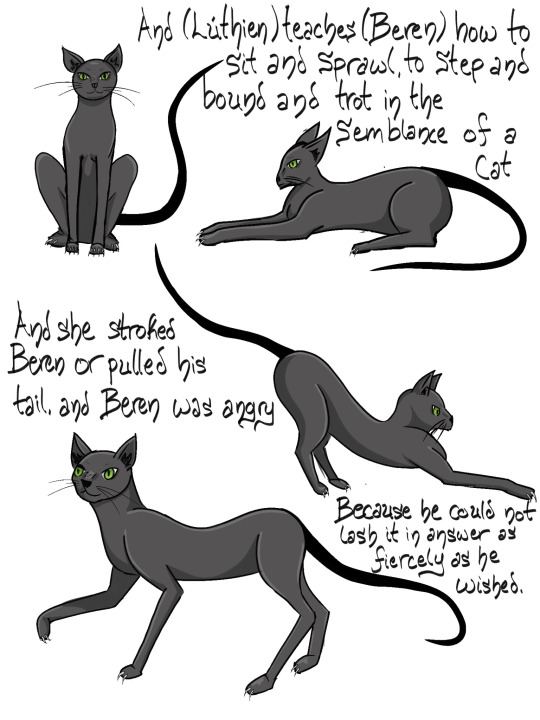
In the first draft of the Lay of Lúthien, Beren is captured by Tevildo the prince of cats (instead of by Thû and the werewolves) so later after rescuing him Lúthien uses her magic (and a giant cat body that they killed) and disguises Beren as one of Tevildo’s giant cat lieutenants “escorting” Lúthien into Angband to Morgoth. But first they had to practice so Beren would make a convincing cat.
I’ve never drawn cats before but the scene was too silly and endearing to not give it a shot
Quote from Beren and Lúthien by J.R.R. Tolkien page 72-73
53 notes
·
View notes
Note
did anyone ask what would make me happy? no.
Angbang ?
the red threads of fortune by neon yang
Mairon trails his gaze on the form of Thû, the strange maia of Námo who has captured his attention the first day they beheld each other. The world is bathed in the light of the Lamps, but since they met, Thû has been in a foul mood, scowling up at the lights and muttering to himself.
"Why are you scowling at the lights?" Mairon asks. "Come, sit with me." The copper-haired chief maia of Aulë pats the patch of grass beside himself.
Thû turns to him, and his scowl lessens, but on his face is this unreadable expression Mairon dislikes. Thû had a brilliant mind, true, but often, Mairon gets glimpses of the unknown that only serves to confirm to him that Thû is much, much more than he lets on. Chief of the Hröar Division, Mairon's arse. There is something more than a middling title in the ranks of the maiar that serve the youngest of the Fëanturi.
Thû sits beside him. "I ask you, what is the use of all these lights? They're beautiful, yes, but must we have them both shining at the same time? Did you know that too much light destroys?"
It surprises Mairon. He stares at the maia that has his attention and affection both. Thû has always been enthusiastic and full of strange ideas, but never before has he seen this kind of vehemence from his fellow Ainu.
"It's supposed to be a cycle," Thû mutters. "The hröar I have designed will wither under these too bright lights. Both shining at the same time! Nuisance! Pest! Hmph."
"The Lamps are the great work of my lord Aulë, and us his maiar," Mairon scowls. "Or have you forgotten who you are with today? Tis as much as mine work as mine fellows and mine lord. Have a care on your criticism, Thû."
"Did anyone ask what would make me happy? No," Thû retorts in annoyance. "All Ainur know that the Children of Ilúvatar will eventually come to be, and I have been tasked, alongside my team, to craft their hröar. Did anyone ask us what is good for the Children? Of course not, and now under this Light, they won't thrive! Too damn bright!"
Mairon can only gape slightly as Thû stands and paces. The fiery maia's own temper crackles just beneath the surface, but this is the only time he and Thû got to see each other after a long stretch of business in their Valar's realms. He stands and hugs the dark-haired maia from behind.
"Subside, my Thû. Subside and hush. I will see if I can try to address thine concerns for the Children with my Lord. And then perhaps Aulë can also forward thine concerns to Varda. We will think of something."
"Tell Aulë of cycles. Can't have all these damn lights shining at the same time. Not good, I tell you. Not good."
"I will, I will." Mairon kisses Thû by the temple and hugs him closer. Slowly, the bristling annoyance from the purple-eyed maia of Námo softens and ebbs. Mairon senses it disappear, like rippling upon the surface of a lake slowly vanishing.
There. Better.
Mairon thought of asking Thû to be one with him today, but with the other's annoyance, he decides to postpone his proposal. After all, Ainur had all the time in the world.
@skaelds
#silmarillion#my drabs#angbang#mairon#sauron#gorthaur#melkor#morgoth#thu is melkor#by lamplight gold#mairon level 9000#historically evil husband
11 notes
·
View notes
Text
“Then Lúthien dared the most dreadful and most valiant deed that any of the women of the Elves have ever dared; no less than the challenge of Fingolfin is it accounted, and may be greater, save that she was half-divine. She cast off her disguise and named her own name and feigned that she was brought captive by the wolves of Thû. And she beguiled Morgoth, even as his heart plotted foul evil within him; And she danced before him, and cast all his court in sleep; and she sang to him, and she flung the magic robe she had woven in Doriath in his face, and she set a binding dream upon him—what song can sing the marvel of that deed, or the wrath and humiliation of Morgoth, for even the Orcs laugh in secret when they remember it, telling how Morgoth fell from his chair and his iron crown rolled upon the floor.” -“The Quenta”, one of the earliest versions of The Silmarillion, as published in The Shaping of Middle-earth, edited by Christopher Tolkien
LOL That time Lúthien made a complete ass of Morgoth.
#luthien#luthien tinuviel#jrr tolkien#jrrtolkien#the silmarillion#the quenta#morgoth#the shaping of middle-earth#middle earth
62 notes
·
View notes
Text
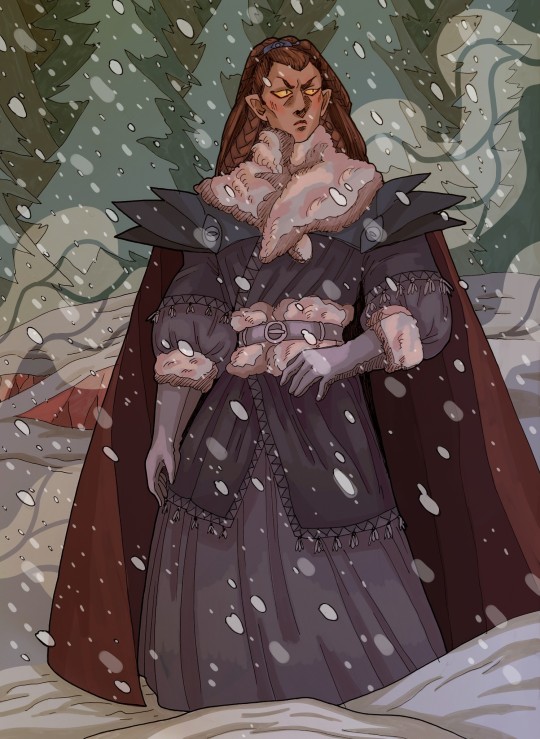
Sauron, captain of the host,
the lord of werewolf and of ghost,
most foul and fell of all who knelt
at Morgoth's throne. In might he dwelt
on Gaurhoth Isle; but now had ridden
with strength abroad, by Morgoth bidden
to find the rebel Barahir.
- Lay of Leithian Canto ||
#gorthaur#Sauron#Mairon#Thû#Gorthû#tol en gauroth#Morgoth#Melkor#lieutenant of morgoth#tolkien#silmarillion#lotr#fanart#my art#beren and luthien
442 notes
·
View notes
Text
Whimsy's Christmas Special

Inspired by @cilil pick your Halloween adventure fic, and in light of December being a month of gift giving, I have created this little story where you could pick a gift given by either Melkor or those who serve him.
Enjoy!
Characters: Reader (Second person POV), Gothmog, Melkor, Tevildo, Mairon, Thû, Thuringwethil
Warning: Major character deaths prior to the beginning of the story
Begin story

tags: @asianbutnotjapanese
#pick your gift#whimsy's christmas special#melkor#mairon#tevildo#thuringwethil#gothmog#thû#reader insert#x reader
15 notes
·
View notes
Text
The Nameless Enemy: Speculations on My Favorite Baddie, Part 4
“It was an admirable thing and altogether precious.”

Gas cloud surrounding the star Fomalhaut.
go to part 1 | go to part 2 | go to part 3 | this is part 4 | go to part 5 [coming soon]
We never see Sauron—at least not in The Lord of the Rings—and that was funny to 13 year old me. When I first followed Frodo on that journey to Mount Doom I wondered at the choice to name a book after a villain who doesn’t actually appear in it. There’s the arrow of red light from Barad-dûr’s highest tower, of course, or the dark cloud with the reaching arm that rises over Mordor at the moment of Sauron’s defeat, but both of these function as suggestions of his presence or the weight of his attention only; they are the interpretations of the events as seen by others. Likewise, the one and only time Sauron speaks we receive his words through an intermediary—a contrite Pippin who has sneaked a peek at the palantir.
But Sauron is always there. The threat or the fear of him is always just at the edge of our peripheral vision: in the far-flung, millennia-long plots[1]; in the metaphors that put him everywhere all the time, disembodied limbs reaching to encompass all of Middle-earth (“his arm has grown long”) or disembodied eyes searching[2]; in the almost campy performance of evil on display when he orders his minions to steal only black horses from the Rohirrim; in the capitalized pronouns; in the metonymy and other evasive forms of address his orc underlings use to circumnavigate invoking him. In poor Sméagol’s other self[3].
In the ever-increasing weight hanging from Frodo’s neck: our antagonist is on that journey, too, literally and figuratively barreling towards his own destruction.
Along that journey Tolkien tells us numerous names and epithets for him—103 according to Richard Blackwelder’s A Tolkien Thesaurus—not counting the many he goes by in other texts. One of those is “The Nameless Enemy.” This word—“nameless”—is first applied in this way by Boromir at The Council of Elrond and later by Faramir, suggesting that invoking the name “Sauron” may be considered dangerous or even taboo to the Men of Gondor.
But “nameless” is far more appropriate than this simple explanation can express.
Sauron is fundamentally a shape-shifter, a deceiver, the one who sees but is never seen. A cursory reading of the major Legendarium texts reveal a character who appears full of contradictions. He is explicitly characterized by his love of order and efficiency, and yet he is said to have “adored” Morgoth, a being most closely associated with chaos, destruction, and nihilism. He is the technologist, the planner, the maker of Black Speech[4], the one who turns Morgoth’s grand desires into plans of action—like Saruman he “has a mind of metal and wheels.” But he is also Thû, the Lord of Werewolves; Thû, the Hunter; and also Thû, the Necromancer, a master of cruelty and twister of body and spirit. He is the “reformer” who seeks the rehabilitation of Middle-earth, who “was indeed not wholly evil,” who seeks the material betterment of his subjects—so long as he has their worship and obedience. But he is also the catalyst of the final defilement of Númenor where he ends as the high priest of Morgoth, master of lies and disinformation campaigns, and promoter of human sacrifice whose cultivating of humanity’s most horrific traits ends only with the reshaping of the world.
Yet unlike Morgoth, nowhere in the works we collectively call Tolkien’s “Legendarium” does Tolkien ever tell us Sauron’s original name.
Names carry a lot of weight in the Legendarium. Inside the Secondary World of The Lord of the Rings characters like Treebeard express to the reader the importance of names to what and who things and people are. Teenage me was well aware of this. Way back in 1994 I was sure that if I just knew Sauron’s missing original name I could make sense of his contradictions. So I scoured every volume—Letters, Unfinished Tales, The History of Middle-earth—hunting just that information, but without success. 20 years later, at the end of a decade spent not thinking much about Tolkien, Sauron, as far as I knew, was still The Nameless Enemy in both the Primary and Secondary worlds.
Then one night…
I had recently seen The Hobbit: The Battle of Five Armies and my head was buzzing with Dol Guldur questions. During the wee winter hours of mid January 2015, as I was link-hopping through a Google search, I think I must have made my way back to the “Sauron” entry on Wikipedia[5] which is where (rather ironically) I finally got my answer. Somewhere in Tolkien’s endless linguistic notes he had given his penultimate baddie an original name[6]: “Mairon.”
The name Mairon thus means “admirable/excellent one”, a masculine noun derived from the adjective maira “admirable, excellent, precious” or “splendid, sublime” – “only [used] of great, august or splendid things”[7].
Suddenly Frodo’s description of the Ring just before he fails to throw it in the fireplace at Bag End came bubbling up from my memory, and I opened my nearest copy to find:
Frodo drew the Ring out of his pocket again and looked at it. It now appeared plain and smooth.... The gold looked very fair and pure, and Frodo thought how rich and beautiful was its colour, how perfect was its roundness. It was an admirable thing and altogether precious[8].
Well then. It was at this very moment, in my frustration at having known the answer for 20 years without knowing I knew it, that I threw my one-volume copy of The Lord of the Rings against the wall and screamed a few choice words at Tolkien’s ghost. If he heard me, he hasn’t responded, which is probably just as well.
This isn’t exactly new to Tolkien fandom (certainly not on Tumblr!). This shocking bit of trivia—that Sauron’s original name meant “precious” of all things—is something many fans have already commented on, often with incredible insight, but there are other aspects of this name that I have not seen addressed in meta form, and it’s those I plan to focus on here.
Note: if there is any aspect of Tolkien’s work that I have always felt too ignorant to fully appreciate, it is the linguistics. I beg your indulgence. Chances are high I am about to bull up this china shop.
Locating “Mairon”
The name “Mairon” appears in a selection of linguistic notes dated from the mid 50’s to late 60’s which were compiled for publication in the 17th volume of the journal Parma Eldalamberon (PE17). This body of work consists of glosses and detailed etymological information for words, phrases, & passages in Tolkien’s constructed languages that appear in The Lord of the Rings. Though written after and in response to The Lord of the Rings, the work appears to have effected Tolkien’s understanding of the Silmarillion if Tolkien’s words to Rayner Unwin can be trusted: "Time has not been wasted. I have done a great deal of work on the Silmarillion largely as a consequence of thinking about the points raised.”
The name “Mairon” comes from the primitive root MAY-. PE17 lists several entries for this root, written down at different times, between which there are two main glosses. They are, in order: ‘make’ (in the sense of art) and ‘excellent/admirable.’
A number of roots related to MAY- are also listed including (A)MAY- (‘suitable, useful, proper, serviceable, right’); it’s inverse, PEN- (‘lack’); and MA3- (‘serve, be of use‘ but also ‘handle, manage, control, wield’ and ‘hand’).
From the root MAY- meaning ‘make’ are derived the words ‘maire’ (noun: a work of high and beautiful art), ‘maita-’ (transitive: to make with art, design, compose), and ‘maitar’ (noun: artist). From the first MAY- entry meaning ‘excellent, admirable’ are derived ‘maira’ (adj: admirable, excellent, precious) and ‘maina’ (noun: a thing of excellence, a treasure). And from the second MAY- entry meaning ‘excellent, admirable’ is derived ‘maira’ (adj: admirable, splendid, sublime. Only of great, august or splendid things).
The name “Mairon” is derived from one of these two instances of the noun “maira,” but it’s not hard to see the connection between “Mairon” and some of the other glosses—as a Maiar, especially a Maiar of Aulë, Mairon is certainly a “maker.” The association with “usefulness” also makes sense for a being interesting in order and efficiency. Additionally, as Jonathan McIntosh points out in The Flame Imperishable, the fundamental evil of The Ring—why it cannot ever be used for good—is the fact that it represents the objectification of a person (Sauron), who deliberately turned part of himself into a tool, taking the idea of “usefulness” to terrifying levels.
Throughout his history Sauron repeatedly appears in situations where he either plays a supportive role or pretends to play a supportive role. He is the “admirable/excellent” pupil of Aulë. He switches allegiance and serves Melkor, maintaining the sole admirable quality of seeking no power for himself but only for his master. He provides knowledge to Men in the East and imagines for the inhabitants of Arda a better (material) future. He offers his knowledge to the Elves of Eregion as a part of a plan to jointly fulfill those hopes for the future. As he descends from “benevolent reformer” into madness and murder in his quest for control, we might even guess it is at first only because his perceived ends have overshadowed the means of their acquisition. When the threat of Numenor comes, he once again plays the role of subservient adviser, but this time there is nothing genuine about it. These associations with service are appropriate especially as all of the entries for the root MAY- show the name of the lesser order of Ainur, the “Maiar,” being derived from it as well.
According to Christopher Tolkien, the term “Maiar” first appears some time between 1951 and 1958. The entries for “Maia(r)”/“Maya(r)” in the linguistic notes compiled into PE17 can be dated to between 1955-1960, the same period which the notes that contain the name “Mairon” date to.
These words—one the name for an individual (Mairon) within an order of beings and the other a name for the entire order (Maiar)—are closely related. Considering the fact that most Maiar were associated with service and a subordinate position (most served under a Vala) and all were in some sense “makers” (fundamentally subcreative and even demiurgic beings), perhaps we can say that prior to his corruption, Mairon was a kind of exemplar of his order—not just a maiar, but the maiar, “the definite article, you might say”[9]. This in itself might explain why he was so integral to Morgoth accomplishing so many of his designs during the First Age. As one of if not the most powerful of and exemplary of a class of beings made to serve and be useful, he was likely a very effective asset, and that sheer effectiveness might well be something to be admired for. But how does the meaning of his name compare to other Ainur?
There are relatively few named Valar and Maiar in the Legendarium. For some of these, etymological information can be very sparse. Below follows a list of names and meanings taken mostly from PE17 and from various later volumes of The History of Middle-earth[10]. Since “Mairon” is a Quenya name, I have supplied all other Ainur names in Quenya and only included translations in other languages where I deemed it necessary for clarity.
Valar
Aulë (Q): Invention
Estë (Q): Rest
Irmo (Q): Master of Desire
Manwë (Q): Blessed One
Melkor (Q): Mighty Arising/One who arises in Might
Námo (Q): Judge/Ordainer
Nessa (Q): Young
Nienna (Q): Weeping/She Who Weeps, derived from “nei” (tear)
Oromë (Q): Horn-blower, from the Valarin “Arômêz”
Tulkas (Q): Strong/Steadfast, from the Valarin “Tulukhastāz” (yellow-haired)
Ulmo (Q): The Pourer, from the Valarin “Ullubōz”
Vairë (Q): Weaver, derived from the root “wey” (weave, wind)
Vana (Q): Beauty/Beautiful One
Varda (Q): Sublime/Lofty
Yavanna (Q): Giver of Fruits
Maiar
Aiwendil (Q): Lover of Birds
Arien (Q): Maiden of Sunlight/Maiden of the Sun
Curumo (Q): Cunning One/Man of Skill
Eönwë (Q): etymology unknown but perhaps derived from “haste” or “hawk”
Ilmarë (Q): Starlight
Mairon (Q): Admirable/Excellent; from maira: Admirable/Excellent/Precious/Splendid/Sublime
Melyanna (Q)/Melian (S): Dear Gift
Olórin (Q): Dreams/Dreamer (in the sense of Elvish memory/imagination/inspiration/fantasy)
Ossë (Q): etymology unknown but perhaps derived from “spuming” or “foaming”
Salmar (Q): derived from salma/“lyre”
Tilion (Q): The Horned
Uinen (Q): etymology unknown but perhaps derived from “water” or “seaweed”
No doubt there is a lot of subjectivity in how one can categorize these names—is Melkor’s association with Might that different from Tulkas’s association with Strength?—but for the purposes of this exercise I’m going to take a stab at it.
The vast majority of these names (or titles as the case may be) refer to either distinct material objects, concepts, or aspects of Creation (e.g. sunlight, birds, fruits, horns, beauty, youth, desire, dreams, strength, etc.) or an action or role associated with such (e.g. weaving, inventing, weeping, pouring, foaming, etc.). Such names and titles make sense for beings whose Primary World counterparts are the gods and goddesses of myth, associated as they are with their individual domains. Of the remainder, a handful of Valar names function like honorifics or expressions of awe (e.g. Blessed, Mighty Arising, Lofty) that point to the owner being particularly possessed of power or favor or of being worthy of veneration. The remaining names are Maiar names, and could also be viewed as honorifics, but they do not fit as cleanly into that category, though they each reference the name’s owner as possessing a positive quality. They are Melyanna (Dear Gift), Curumo (Man of Skill), and Mairon (Admirable/Excellent).
“Man of Skill” prompts the question “what kind of skill?” According to Hammond and Scull’s Companion and Guide, the Mannish translation of Curumo—Saruman—is derived from Old English and references “device, design, contrivance, and art,” as would be fitting for a Maia of Aulë. In light of this, it is interesting that Mairon, who was already perceived at the time his name was chosen as “mightiest in the lore” of Aulë, is given a name not associated specifically with artifice and design, but rather with the more generalized characteristics of admirability and excellence. Excellence in what? Admirable for what? This lack of specificity places him, perhaps, more closely in alignment with Melyanna whose name, “Dear Gift,” is derived—like Sauron’s nom de scène “Annatar”—from the root ANA- found in the word for “gift” and associated with the ideas of “to” or “towards.” We might even say that Melyanna’s name implies both relation (a gift requires an object—person or otherwise—to be given to) and the direction of that relation (towards another/away from the self). What then are we to make of “The Admirable”? Instead of asking “admirable for WHAT?“ maybe what we should really be asking is “admirable to WHOM?”
Who Will Admire You Now?
To be admirable requires another (at least theoretical) person to do the admiring. As with Melyanna, the name “Mairon” necessarily implies a relationship and a specific direction to that relationship between the name’s owner and another party, in this case someone capable of admiration. But whereas the idea of “gifting” associated with Melyanna’s name involves movement from her outwards, the direction of action here is reversed—inward instead of outward, from the admirer to the admired.
In letter 183 Tolkien writes of Sauron in the Second Age: “When he found how greatly his knowledge was admired by all other rational creatures and how easy it was to influence them, his pride became boundless.” It is around this time that Sauron begins his quest to obtain worship as a god-king in Middle-earth. His pride is later greatly injured by Ar-Pharazôn’s choice to parade him in chains as a captive through Armenelos. This was a public act, a “showing off” of Sauron, a once mighty god now a humbled prisoner. This was Pharazôn exerting power over Sauron through manipulating how others saw him. It was this humiliation that Tolkien says influenced the magnitude and cruelty of Sauron’s revenge. While the text does not explicitly reference shame here, we can infer it. Shame is pride’s antithesis and is also explicitly associated with Sauron in The Silmarillion.
After his defeat by Luthien and Huan, Luthien obtains ownership of Sauron’s fortress by threatening to shame him before Morgoth. If he does not give her control of it, she says, she will rip his spirit from its house and make him flee naked back to Angband: “[t]here everlastingly thy naked self shall endure the torment of [Morgoth’s] scorn, pierced by his eyes, unless thou yield to me the mastery of thy tower[11].” Later, at the end of the War of Wrath, Sauron presents himself to Eönwë for pardon. Eönwë, however, explains that Sauron must present himself to the Valar for judgment instead, as Eönwë, himself, is not able to judge one of this own order. At this we are told “Sauron was ashamed, and he was unwilling to return in humiliation and to receive from the Valar a sentence, it might be, of long servitude in proof of his good faith; for under Morgoth his power had been great.”
Each of these moments are turning points in the trajectory of Sauron’s arc. We don’t hear more about him after he retreats to Taur-nu-Fuin. We can wonder whether he ever even returned to Angband[12] or if he remained hidden until he came before Eönwë. In each of these moments Sauron’s image of himself, the image of himself to others, or what he imagines that image to be plays a fundamental role. That is to say pride—but also shame—plays a fundamental role.
The Silmarillion is filled with cautionary tales about pride. Melkor’s own Fall is the result of his pride, spurred by his time alone searching for The Flame Imperishable, his refusal to work in tandem with the other Ainur in an act of subcreation, and his frustration at not being able to create ex-nihilo as Eru could. He is shamed by the circumstances of his defeat and imprisonment in Valinor and the weakness he exhibits after his return to Angband. His Fall ultimately results in a degradation of the very characteristics that give him his name, “Mighty Arising.”
How might this play out differently in manner or magnitude for a being who may be, in some ontological way, fundamentally tied to receiving the admiration of others and to providing service to others? Does the dance of pride and shame become a kind of feedback loop, a kind of void of its own, like the Ring, itself?
During his eons of time in Middle-earth, the being we call Sauron was known by many names, most of them anything but flattering. Sauron means “The Abhorred”; its parallel in Sindarin, Gorthaur, means “Dread Abomination” or alternatively “Mist of Fear.” Later notes link the names to the root THAW-, glossed “cruel,” while earlier notes link them to the roots SAWA- and THUS- which carry connotations of stench.
As if something has gone off or gone rotten.
These names and the glosses of their roots represent inversions of attributes associated with the name “Mairon”: no longer Admirable but Abhorred, no longer suitable, no longer of service, no longer a maker of art.
But what did Sauron call himself?
Nameless
In PE17 we read the following regarding the name Mairon: “This was altered when he was suborned by Melkor. But he continued to call himself Mairon the Admirable, or Tar-mairon 'King Excellent' until after the downfall of Numenor.” Mairon, himself, did not stop using that name, but someone else, presumably the other Ainur did. They struck him from the rolls, so to speak. No longer an exemplar of their order, he was no longer worthy of either the name Mairon nor the title Maiar[13].
He continued to hold onto this name for himself until after the fall of Numenor. What changes at this point? His physical form having been obliterated, this once-nimble shape shifter can no longer appear fair in the eyes of others. Possessed now with only the Ring’s power of domination and the ability to inspire terror, The Admirable is unlikely to ever again experience the admiration that we might guess is foundational to his very being.
We do not know what Sauron called himself after this point. After his defeat by the host of the Last Alliance he flees (again bodiless) into the East until he can grow a new form—a slow process in his weakened state and bereft of the Ring. Upon his return to Dol Guldur he is given the name “The Necromancer,”[14] but it is never stated that this is what he calls himself.
By the time of the War of the Ring, Aragorn is of the belief that the Dark Lord does not allow the name “Sauron” to be spoken by his subjects. [15] Though it is not clear that anyone but Elves and a few of “the wise” among Men and Dwarves left in Middle-earth would know what the Quenya name “Sauron” even means, it is reasonable that those who you want to view you as a god-king should likely not be calling you “Abhored” while doing so. Still, this doesn’t tell us what name he used for himself.
We do know that “by the end of the Third Age […] he claimed to be Morgoth returned.” Did he really believe that? Tolkien never tells us for sure whether he had actually descended deep enough into madness to believe he was Morgoth. Sauron had preached Morgoth’s return for centuries in the Second Age as Morgoth’s “high priest.” Perhaps the choice to present himself under that name in the Third was expedient: if there was historical knowledge that the entity “Sauron” was overthrown in the Last Alliance, it may be that presenting himself as that same entity would not have inspired the devotion he needed. This would hold with the pattern from his time in Numenor when he converted Men to the worship of Morgoth because, as Pharazôn’s captive, he could hardly demand worship of himself.
This is again part of a trend. Sauron sees but is never seen. The fundamental being, the fundamental and authentic who that was before the Fall is always obscured and never appears in the text. Even Melkor gets some hint of close narrative written of him during the Ainulindalë, in the moments when he was still fully One Who Arises in Might. But not The Admirable. His earliest close narrative appearance in the Legendarium is in the story of Beren and Luthien, long after he has fallen to evil. And it begins with Sauron weaving a web of terror and illusions from within Dorthonian to ensnare Gorlim.
Sauron is a master of crafting images, especially of himself. Melkor diffused his being across middle earth, making it into his Ring, in order that he could control it, tarnish it, destroy it. Not because he wanted to do anything good with it, but because it wasn’t solely his. Sauron splits his Being, pouring some of it into his own Ring, and making of himself an object. He does not spread his Being any farther than that, but he does spread his image—the image of himself he has crafted—such that by the end of the Third Age, while located materially at the top of his tower, he interfaces with Middle-earth (and the Reader) almost entirely through servants and underlings, second hand accounts, stories and legends, fear of The Eye. This Sauron is practically a gestalt entity, a negative space giving shape to terror.
How long has it been since he encountered another on honest terms? If he cannot honestly encounter another being in the world on honest terms, how can he fulfill the relational role his name implies? What happens to The Admirable when no one can truly see him any longer, when no one can admire him (to say nothing of will)? And what might that tell us about what he called himself to himself? About what name he associated with “I”?
Consider for a moment Treebeard, whose name grew longer over the ages and became like a story, listing out his relation to all the other things in the world with which he had meaningful contact. Or perhaps Tom Bombadil. In The Flame Imperishable Jonathan McIntosh explains Tom’s confusion at the repeated questions about who he is in this way: “Goldberry and Tom are referring to the mystery of names. See and ponder Tom’s words in Vol. I p. 142. [‘Tell me, who are you, alone, yourself and nameless?’]. You may be able to conceive of your unique relation to the Creator without a name... But as soon as you are in a world of other finites with a similar, if each unique and different, relation to Prime Being, who are you?”
What about those “other finites” each “unique and different”?
Those who fall under the force of Sauron’s dominating will all seem to forget their names. The Mouth no longer knows his, I suspect the Nazgûl don’t either. They are no longer “others finites” that Sauron might relate to. They are extensions of him, perhaps less literally than the orc armies that sway and lose their nerve for battle when Sauron takes his attention off them, but they are extensions of him nonetheless. The Mouth of Sauron has even transformed his identity such that he is a part of Sauron’s body!
Near the beginning of this essay I mentioned the presence of Sauron in “Sméagol’s other self.” Sméagol had spent hundreds of years alone with nothing to talk to but the Ring, the distillation of some significant portion of Sauron’s being. Sméagol’s conflation of “I” and “we”, himself and the Ring, is about more than just the dangers of long-term isolation. It is the burden of the Ring that has subsumed and overwritten his sense of “I.” This would be the ultimate fate of all beings in the world under Sauron’s dominion. Sauron may still recognize he is “in a world of beings,” but his end goal requires they no longer be “each unique and different.” Ultimately his domination will require the erasure of their fundamental and authentic who as well.
Like the solipsistic dyad that is Sauron and the Ring, Sauron’s last Fall is a vicious circle in which the world becomes him and he becomes nothing, no longer able to be related to by others and no longer perceiving authentic others to relate to. He has burned the bridge at both ends and now his ability to exist in a relationship with other beings, the thing that gave him his identity as Admirable, has been destroyed. Maybe that means that Once-Mairon, or the part of him brooding in the top of his fortress, needs no name to refer to “I” in the dark corners of his mind.
Maybe he truly did become nameless, even to himself.
----------
Addendum
Some time between 2007 and 2015, I must have encountered some bit of the relevant PE17 passage...somewhere...possibly on a Tolkien wiki or someone’s blog post, but it was distinctly only that part that tells us that “Tar-Mairon (King Excellent)” was what he called himself around the time of Numenor, not that it was his original name. This, in isolation, sounded so suitably narcissistic that I assumed, at the time, that it must simply be the name he adopted at some point during his Second Age empire building. I didn’t think much more of it.
Weirdly, I actually have a very vivid memory of reading this not online but in (I thought) Sauron Defeated. I even have a clear mental picture of how the sentence looked on the page, as part of one of Christopher’s notes on the content of “The Notion Club Papers.” And yet...there’s nothing in there. My mind, it seems, has created an entirely different origin for that bit of information.
Human memory is terrifying.
Lastly, hey, if you got this far, thank you for reading! I started writing portions of this particular piece in a state of shock about 7 years ago, long before I knew what “metas” even were; I just haven’t had the emotional will to finish it for the last 2 or 3 years.
Part 5 of this series (A Wizard, a Demon, a Cat, a Reformer, a Satanist, and a Bureaucrat) will happen. I hope before the end of the month, but I am really gonna try to shoot for “less than 7 years from now.”
Notes
Discussed here: The Inverted Mountain. This is, incidentally, the one and only place in the narrative where where the narrator gives us a peak at what Sauron is actually thinking.
Someone wrote a bit about this: that Sauron in The Lord of the Rings could be seen as more acutely present and embodied in the text via these metaphors, as separated limbs and parts. Does anyone know who I am thinking of? I would love to remember where that thought originally came from so that I can give this person credit.
Discussed here: Tolkien the Horror Writer
This isn’t strictly true depending on what you accept as “canon.” This next part isn’t an original observation of mine, but as before I can’t remember whose observation it is (help? Where did I read this?): again depending on what you accept as “canon,” Sauron represents the only person in the Legendarium to have actively participated, like Tolkien, himself, in conlanging, a kind of “ordering of reality,” discussed here: Ordering Reality.
”Which... *averts eyes* ... *slowly crawls under covers* ... *then under bed* ... *digging sounds* ... *mumbles from the center of the Earth* I edited a few times back in the day.
Tolkien, via Pengolodh, states in the Essay “Quendi and Eldar: Note on the ‘Language of the Valar’” that the names given for the Ainur, with the exception of Oromë, are not their right names (which they do not share) but rather their titles. However, these titles nevertheless were awarded due to said Ainu’s characteristics and nature. This revelation naturally leads to the question of who gave them their titles. If some names come from the Valarin, then presumably they either titled themselves or each other—that is, unless we are to understand that the Quendi gave them titles based on their functions which were then translated back into Valarin.
Helge Fauskanger, “A Name for the Dark Lord”.
This passage appears to have been conceived very near to its final form from the very first extant draft of this conversation, before the conversation even fit within the narrative of the greater story: “Bingo drew the Ring out of an inner pocket, and looked at it. It was plain and smooth without device, emblem, or rune; but it was of gold, and as he looked at it it seemed to Bingo that its colour was rich and beautiful, and its roundness perfect. It was very admirable and wholly precious” (HoMe VI: The Return of the Shadow “Of Gollum and the Ring”). To be clear I’m not suggesting that Tolkien had the name “Mairon” in mind when he wrote the first draft of the passage from “Shadow of the Past” or even had those qualities in mind as representative of some early and unstained iteration of his villain. I suspect Bingo’s reaction to the Ring is simply Bingo’s reaction to a powerful and malevolent object.
In “Robot,” the first episode of Doctor Who to feature actor Tom Baker in the lead role, the newly regenerated Doctor tells his soon-to-be companion, UNIT Medical Officer Harry Sullivan, "You may be A doctor, but I'm THE Doctor - the definite article, you might say."
Several come from HoMe X: Morgoth’s Ring, Part Two: “The Annals of Aman.”
More here: Fixation and Attachment Can Lead to Missing Fingers
There is one caveat to this: Tolkien mentions Sauron one last time in a note on a draft of “The Fall of Gondolin” where he appears to be considering whether it was Sauron and not just orcs who was responsible for capturing Maeglin and bringing him to Angband. This would have been well after Sauron’s retreat to Taur-nu-Fuin. Could Sauron have seen this as his chance to re-enter Morgoth’s presence in triumph rather than defeat?
More on that in the previous entry in this series: part 3
After reading the early drafts of The Hobbit, I’ve been convinced that the earliest iteration of The Necromancer was conceived as being the character Thu who has retreated to Taur-nu-Fuin (called Mirkwood by Wizards, Dwarves, and Hobbits in this draft) post his defeat by Luthien. These earliest drafts of The Hobbit were written before there appears to have been any concept of a Second or Third Age, so their temporal and geographic location seems to be Beleriand sometime during the First Age or just after.
The question of why The Mouth of Sauron uses “Sauron” to identify the Dark Lord when addressing Gandalf and company at the end of Book V if Sauron does not permit his subjects to use this name has been addressed numerous times in fan spaces, and these discussions have generated a number of plausible explanations. Perhaps certain high-ranking subjects are permitted to use this name under special circumstances, such as when addressing persons in the West who knew The No-Longer Admirable as “Sauron”—this is the explanation that Hammond and Scull seem to land on in their Companion and Guide. It is not hard to believe that Sauron would control his image differently depending on who that image was facing; he’s a skilled propaganda artist after all, and the fear factor would have taken on a different flavor depending on where it was directed. It’s also possible that the Mouth’s comments can be written off as an authorial invention of whoever Tolkien wants us to believe “wrote” or at least “told” that part of the story (Pippin?). Said author may have chosen to use the name “Sauron” in place of whatever name The Mouth actually used in order to maintain consistency in the narrative.
#tolkien#sauron#silmarillion#the lord of the rings#mairon#annatar#linguistics#ainur#maiar#parma eldalamberon 17#thank god that's done#seriously if you want a more enjoyable and less dry analysis of his name and nature just go read These Gifts That You Have Given Me#which remains the best scholarly exploration of Sauron through creative writing that I have ever read#like seriously the first time I read it it was like checking off all these points regarding sauron and his nature#and I was just nodding my head for months and going yes someone gets it thats it exactly#like single best interpretation of the whole sauron wants to be but is terrified of being seen
104 notes
·
View notes
Text
Chuang Tzu 5.2
Shan-thû Kiâ was another man who had lost his feet. Along with Tsze-khân of Kang he studied under the master Po-hwan Wû-zan.
Tsze-khân said to him one day, "If I go out first, do you remain behind; and if you go out first, I will remain behind."
Next day they were again sitting together on the same mat in the hall, when Tsze-khân spoke the same words to him, adding, "Now I am about to go out; will you stay behind or not? Moreover, when you see one of official rank like myself, you do not try to get out of his way—do you consider yourself equal to one of official rank?"
Shan-thû Kiâ replied, "In our Master's school is there indeed such recognition required of official rank? You are one, Sir, whose pleasure is in your official rank, and would therefore take precedence of other men.
"I have heard that when a mirror is bright, the dust does not rest on it; when dust rests on it the mirror is not bright. When one dwells long with a man of ability and virtue, he comes to be without error.
"There now is our teacher whom you have chosen to make you greater than you are; and when you still talk in this way, are you not in error?"
Tsze-khan rejoined, "A shattered object as you are, you would still strive to make yourself out as good as Yâo! If I may form an estimate of your virtue, might it not be sufficient to lead you to the examination of yourself?"
The other said, "Most criminals, in describing their offenses, would make it out that they ought not to have lost their feet for them; few would describe them so as to make it appear that they should not have preserved their feet. They are only the virtuous who know that such a calamity was unavoidable, and therefore rest in it as what was appointed for them.
"When men stand before an archer, like Yi, with his bent bow, if they are in the middle of his field, that is the place where they should be hit; and if they be not hit, that also was appointed.
"There are many with their feet entire who laugh at me because I have lost my feet, which makes me feel vexed and angry. But when I go to our teacher, I throw off that feeling, and return to a better mood— he has washed, without my knowing it, the other from me by his instructions in what is good. I have attended him now for nineteen years, and have not known that I am without my feet.
"Now, you, Sir, and I have for the object of our study the virtue which is internal, and not an adjunct of the body, and yet you are continually directing your attention to my external body—are you not wrong in this?"
Tsze-khân felt uneasy, altered his manner and looks, and said, "You need not, Sir, say anything more about it."
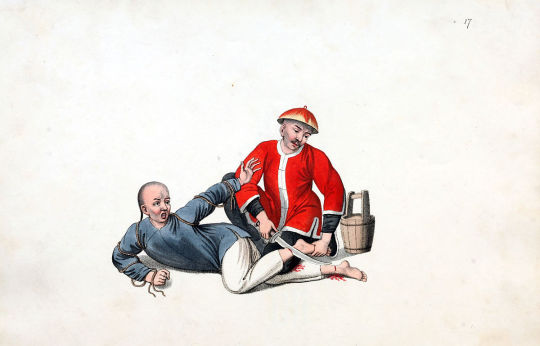
6 notes
·
View notes
Text


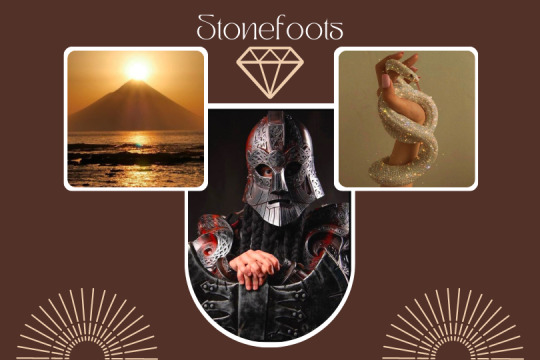
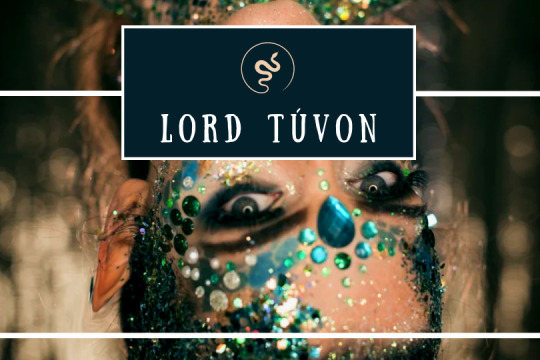
@tolkienocweek day six | original peoples | the sun-dwarves
The Blacklock dwarves and their sister-clan the Stonefoot dwarves dwell in the mountains of the Walls of the Sun in the East of Middle-earth. They are known by their western kin as the Sun-dwarves, for their lands are ever under the Sun’s light, and they honor her as a spirit of fire akin to Mahal their maker. The Sun-dwarves are more open to trade with other races than some of their kindred, and trade with the many tribes of Men in the Lands of the Sun as well as the Kindi tribe of elves who reside on the seaward side of the mountains.
Yet though Men, elves, and dwarves dwell in harmony in the Sun-stained East, it is the dark spirit Lord Túvon who rules the lands from the eastern oceans to the sea of Rhûn. Túvon was once a servant of Morgoth, though he took no part in the horrors of Beleriand, and uses many of his old master’s powers in his own realm. It is Túvon who stole the dwarven-rings of the Stonefoot and Blacklock kings by trickery and force, breeding dragons and dreadful serpents to do his bidding and turning the hearts of ambitious dwarven sorcerors to his evil magics. Only Thû Sunlord, known in the Westlands as Sauron the Terrible, is greater than Túvon, and his reign is feared much more by the Sun-dwarves than the familiar tyranny of the Túvon.
#tolkienocweek#tolkienedit#oneringnet#silmedit#silm#silmarillion#the silmarillion#blacklocks#stonefoots#tuvon#sun dwarves#dwarves#my edit#my writing#edit writing#tefain nin#headcanons#mepoc#id in alt text#not technically ocs here but i basically took some names and gave them backstory!! so i think it counts :)#tuvon is a proto-sauron character from bolt; i make him into his own thing in my personal canon
82 notes
·
View notes